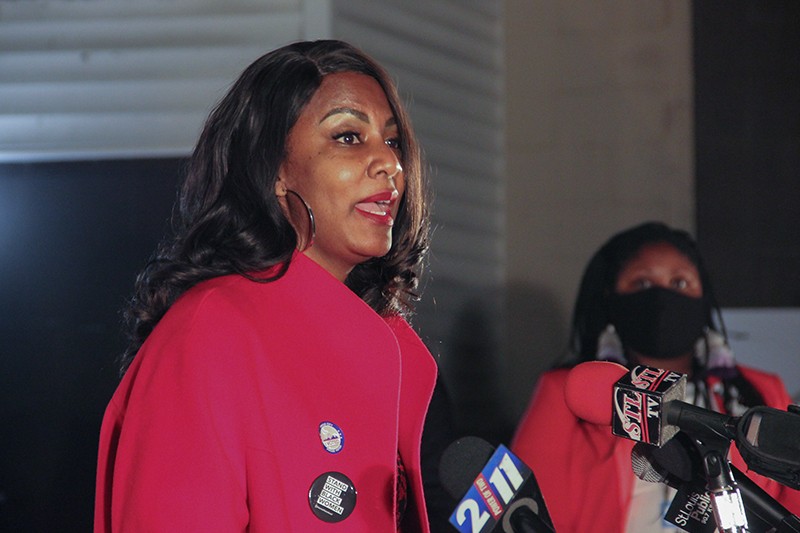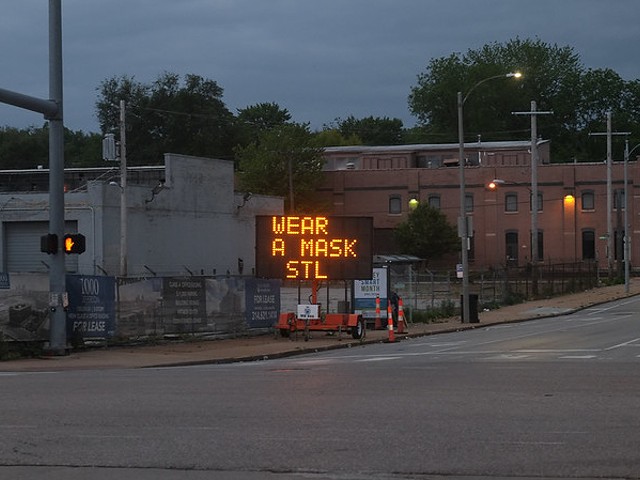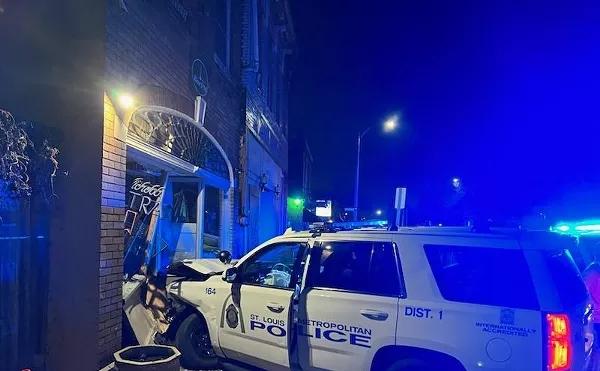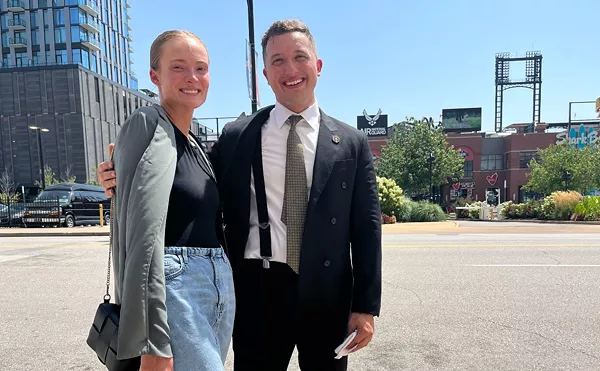Too bad it's on the wrong side.
The city faces two dozen lawsuits stemming from one of the darkest periods in its history: the aftermath of the September 15, 2017, acquittal of police officer Jason Stockley on murder charges in the shooting death of Black driver Anthony Lamar Smith.
Violent protests ensued, but the federal lawsuits involving more than 100 plaintiffs center on three incidents unrelated to those, including the unlawful arrest, beating and pepper spraying of bystanders as part of a "kettling" exercise by police downtown.
Kettling is a noxious police tactic for controlling crowds by trapping them in a limited area, often violating the rights of innocent people. After the kettle, uniformed officers marched like storm troopers, chanting, "Whose streets? Our streets!"
Now the city finds itself defending its police officers and its budget because of the kettling, as well as the apparent mistreatment of seven protesters near Busch Stadium two weeks later, including the Reverend Darryl Gray.
The big issue facing the city is how to play defense while navigating the elephant in the room: the issue of qualified immunity for police. This represents a burning national issue, a doctrine that protects officers from civil consequences for their actions on duty — as well as the government. It's a major target of criminal justice reform advocates.
Therein lies the city's dilemma. On one hand, it has a fiduciary responsibility to its citizens and police officers who have done nothing wrong. But it must also protect those same citizens from abuse from bad cops, of which there are more than a few in St. Louis.
At the moment, the city seems to be falling off the balance beam. A federal judge ruled that the cases against the city can move forward for trial after nearly five years of delay tactics by the defense.
The city appealed that decision, which it had every right to do. But then the city lost again, this time before a three-judge panel of the U.S. District Court of Appeals for the Eighth District. The panel, including two Republicans — one a Trump appointee — ruled unanimously on January 25 in favor of giving the plaintiffs their day in court.
"Police may be entitled to qualified immunity protections if they arrest individual offenders with at least arguable probable cause," it stated, "but officers cannot enjoy such protections by alleging that 'the unlawful acts of a small group' justify the arrest of the mass."
At that point the city had two options, neither of them great: It could settle the cases or it could defend against them in court.
Instead, City Counselor Sheena Hamilton took the extraordinary step of asking the panel to reconsider or, lacking that, bring the matter to the entire circuit. As the Missouri Independent reported: "Hamilton argues in her petition that the court should reconsider the case because 'the panel opinion raises questions of national importance in the context of policing mass civil disorder.'"
Stop right there. Things just got political. That's a clear implication that Hamilton wants the city to defend the "importance" of qualified immunity as a principle, which would be fine were it not rotten to the core.
Qualified immunity is abhorrent to those of us who support criminal justice reform. There is a national movement "to end qualified immunity, once and for all," in the words of national ACLU policy.
Bottom line: In a criminal justice system that almost never serves justice on police officers — even when they kill people with no justification — civil liability is the only accountability left.
Mayor Tishaura Jones, who appointed Hamilton, has built a fine career with racial justice and equity, including criminal justice reform, as a centerpiece. If Jones is now OK with qualified immunity, you've got news.
The mayor's chief of staff, Jared Boyd, had told St. Louis Public Radio — after Hamilton's selection —that the new city counselor would be "given a mandate to reconsider what winning looks like." That would mean focusing on more than saving money on these cases. "It's not to say we shouldn't be cognizant of city resources," he said, "but that can't be the only thing."
Local attorney Javad Khazaeli, who is handling almost all of the civil lawsuits (including the class action) minces no words in attacking Hamilton's actions.
"There are 24 cases pending against the city with over 100 citizens alleging that they were unlawfully arrested, beaten and/or pepper sprayed," Khazaeli tells me. "And all of these violations were recorded. Almost every federal judge that has looked at this agrees with us that police cannot do this to people who are not breaking the law and complying with police orders. Yet the city continues to defend the indefensible behind the wall of qualified immunity."
Khazaeli adds this about September 17, 2017: "At about 8 p.m., there was property damage downtown. An hour later, St. Louis Police beat and ended the career of undercover officer Luther Hall. Two hours later, the city kettled, beat and pepper sprayed over 100 citizens — people who lived in the neighborhood, were out to dinner or were in St. Louis for the U2 concert. Four years later, there is not a scintilla of evidence that any of these people had anything to do with the property damage or any other law breaking."
Sure, that's the opinion of the plantiffs' lawyer. It makes good sense to me, but the case hasn't yet been won in court.
I have no rooting interest or opinion about what any settlements should look like. But they sound like a good idea right now. The larger question for city residents is indeed political: Why is the city counselor advancing a position so ideologically out of step with what one would expect from a progressive administration?
Hamilton's appointment by Jones last September was covered — understandably — as an historic event: The first Black woman mayor appoints the first Black woman city counselor. That was an important story.
And her qualification for the job is beyond reproach. A graduate of Saint Louis University, her career as a young lawyer has been meteoric at Armstrong Teasdale and Dowd Bennett, two of St. Louis' top law firms. Hamilton has received all manner of accolades and important board appointments.
But there's more to the story. One of Hamilton's key specialties has been corporate defense. She successfully defended Walmart, Missouri Baptist Medical Center and other large entities against racial-discrimination claims.
Hamilton's background doesn't align all that well with the administration's goal of reforming the criminal justice system to make it fairer for ordinary citizens. And it's unclear how Hamilton regards the directive to "change what winning looks like," as Boyd put it.
On its website, the city counselor's office bills itself as "a full-service law firm representing the city of St. Louis." A good law firm provides far more than the execution of legal matters. It helps clients shape their legal strategies and vision. St. Louis' firm should care about protecting its citizens' rights as much as their collective pocketbook.
The city isn't obligated to defend every single police officer who may have broken laws. It isn't doing so in the kettle cases. And there's nothing requiring the counselor to strive for the perpetuation of qualified immunity. Defending police and holding them accountable are not mutually exclusive tasks.
The challenges presented by the civil lawsuits alleging police misconduct extend far beyond dollars and cents. They pose a much broader question, one that the city counselor might want to factor into her work:
What side of history does the city of St. Louis want to be on?
See also: City Counselor Faces Mounting Criticism






